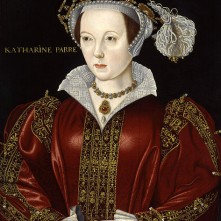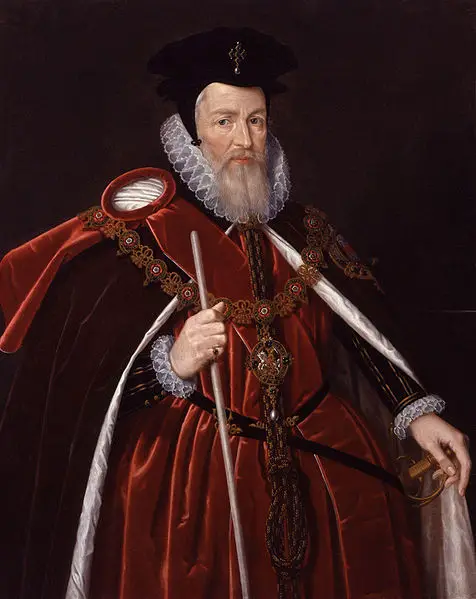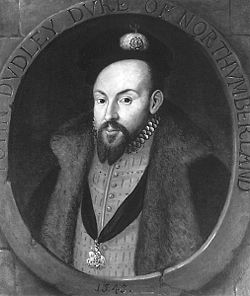31 August
1545 – A contagious disease known as the 'Bloody flux' hit Portsmouth, killing many men serving on the ships stationed there. It had already been recorded in Plymouth, at the beginning of August - "that there is a great disease fallen amongst the soldiers and mariners almost in every ship" - and Thomas Poynings had written to the king from Boulogne on 15th August, commenting that he was "somewhat diseased with the bloody flux".
1555 - Robert Samuel, former minister of East Bergholt Church in Suffolk, was burned at the stake in Ipswich, probably at the Cornhill. He was one of the Ipswich Martyrs. Click here to find out more.
1580 – Death of Wiliam Llŷn, the Welsh language poet and elegist, at Oswestry.
1613 – Death of Matthew Baker, shipwright and first man to record ship designs on paper. His papers were catalogued by Samuel Pepys as "Fragments of ancient English shipwrightry".
1 September
1532 - Henry VIII made Anne Boleyn Marquis of Pembroke, a title in her own right, to “fit” her for the European stage and in readiness for the couple's upcoming meeting with King Francis I of France.
1566 – Birth of Edward Alleyn, actor, theatre entrepreneur and founder of Dulwich College and Alleyn's School, in the parish of St Botolph without Bishopsgate, London. Alleyn was a major figure in the Elizabethan theatre, being a member of the Earl of Worcester's Players, Lord Strange's Men and then leading the Admiral's Men. In the 1590s, he played title roles in “Doctor Faustus”, “Tamburlaine”, and “The Jew of Malta” by Christopher Marlowe. The business side of his career saw him partnering with Philip Henslowe and becoming part owner of the Rose Theatre, the Paris Garden and the Fortune Theatre.
1599 – Death of Dorcas Martin (née Eccleston), Lady Martin, translator, bookseller and Puritan. She was buried at All Hallows, Tottenham. Dorcas was married to Sir Richard Martin, Master of the Mint and Lord Mayor of London, and is known for her translations of prayers, psalms and catechisms.
1615 – Death of Sir Richard Knightley, member of Parliament, Sheriff of Northamptonshire and patron of Puritans, at Fawsley in Northamptonshire. Knightley was present at the executions of Anthony Babington and Mary, Queen of Scots, and was involved in the publication of the “Marprelate tracts”.
2 September
1507 (2nd or 3rd September) – Death of Thomas Savage, diplomat, Henry VII's Lieutenant and High Commissioner in York and Archbishop of York, at Cawood Castle. His body was buried at York Minster, but his heart was buried at Macclesfield, in one of the chapels at St Michael's Church.
1534 – Death of Gerald Fitzgerald, 9th Earl of Kildare and Lord Deputy of Ireland, in the Tower of London. An already ill Kildare had been arrested on 29th June 1534, accused of corruption and causing rebellion in Ireland. He was buried in the Chapel of St Peter ad Vincula at the Tower.
1554 – Anthony Browne, son of Sir Anthony Browne, was created 1st Viscount Montagu as part of the celebrations for Mary I's marriage to Philip of Spain.
1591 - Naval commander and explorer Sir Richard Grenville died at sea from injuries sustained while commanding his ship, The Revenge, in the Battle of Flores in the Azores.
3 September
1553 – Edward Courtenay was created Earl of Devon. He had been imprisoned in 1538, at the age of twelve, due to his family's links with the Poles and Nevilles, but was released shortly after the accession of Mary I.
1557 - News reached London that the English and Imperial troops had been successful in storming St Quentin, and there were widespread celebrations; bonfires were lit, bells were rung and there was singing. The good news was marred, however, by news of the death of Henry Dudley.
1588 (3rd or 5th September) – Death of Richard Tarlton, actor and famous clown, in Shoreditch. He was buried in St Leonard's Church, Shoreditch. Tarlton was a member of the Queen's Men, but is famed for his post-play jigs as a clown.
1592 – Death of writer and playwright Robert Greene in Dowgate. He died from a fever and was buried in a churchyard near Bedlam. Greene was a prolific writer, writing autobiographical works, plays and romances, but is best known for his pamphlet “Greene's Groats-worth of Wit bought with a Million of Repentance”, which is the first contemporary reference to William Shakespeare. It was actually an attack on Shakespeare, whom Greene accused of plagiarism, and of being uneducated.
1597 – Death of Sir John Norreys (Norris), military commander, at his brother Thomas's home, Norris Castle in Mallow, co. Cork. He died in his brother's arms, and it is thought that his death was due to trouble from old wounds, perhaps gangrene. Norris served as a soldier in France, the Low Countries and Ireland.
4 September
1504 – Birth of Antoine de Noailles, soldier and French diplomat at the English court in Mary I's reign, at Château de la Fage.
1539 - William, Duke of Cleves, signed the marriage treaty promising his sister, Anne of Cleves, in marriage to King Henry VIII. The Duke then sent the treaty to England, where it was ratified and concluded by early October.
1550 – Death of Sir Thomas Paston, Gentleman of the Privy Chamber in the reigns of Henry VIII and Edward VI.
1588 - Robert Dudley, Earl of Leicester died at his lodge at Cornbury, near Woodstock in Oxfordshire.
He had been ill for some time with a recurring stomach ailment, and so had decided to travel to Buxton to take the waters, but he died on the way.
1590 – Death of Sir James Croft, Lord Deputy of Ireland, member of Parliament and conspirator. Croft was one of the leaders of Wyatt's Rebellion in 1554, but although he was sentenced to death for treason, he was eventually released and pardoned. He served Elizabeth I as Comptroller of the Household, but was imprisoned briefly in her reign for negotiating with the Duke of Parma without permission. Croft was buried at Westminster Abbey, in the Chapel of St John the Evangelist.
5 September
1548 - Catherine Parr, Queen Dowager, wife of Thomas Seymour and widow of Henry VIII, died aged around 36 at Sudeley Castle. She had given birth to her first child, a daughter Mary, on 30th August, but within a few days of the birth, she had contracted puerperal fever.
1558 (5th or 6th September) – Death of Sir Robert Broke, Judge, legal writer and Speaker of the House of Commons, at a friend's house in Patshull, Staffordshire. He was buried in Claverley Church, Shropshire. Broke also served as Deputy Chief Steward for the Duchy of Lancaster, Serjeant-at-Law and Chief Justice of the Common Pleas.
1569 – Death of Edmund Bonner, Bishop of London and a man nicknamed “Bloody Bonner”, in Marshalsea Prison. He was buried at St George's, Southwark, but it is thought that his remains were later moved to Copford, near Colchester, a manor held by Bonner as Bishop of London. In Mary I's reign, he was in charge of burning reformers in London, hence his nickname “Bloody Bonner”. Bonner was imprisoned in Elizabeth I's reign for refusing to follow the “Book of Common Prayer” in his services, and for refusing to take the “Oath of Supremacy”.
6 September
1506 – Death of Sir Richard Guildford, courtier and administrator in the reign of Henry VII, in Jerusalem on pilgrimage. He was buried on Mount Syon. Guildford's offices included Master of the Ordnance and Armoury in the Tower of London, Master of the Horse and Privy Councillor.
1520 - Reformer Martin Luther sent his pamphlet “On the Freedom of a Christian” (also known as “A Treatise on Christian Liberty”) to Pope Leo X.
1572 – Death of Sir Henry Jerningham at his manor of Costessey in Norfolk. He was buried in the parish church there. Jerningham served Henry VIII, Edward VI, Mary I and Elizabeth I, and his offices in Mary's reign included Privy Councillor, Vice-Chamberlain of the Household, and Captain of the Yeomen of the Guard.
1578 – Sir Francis Drake and his ship, the Golden Hind (or Pelican as it was called then), entered the Pacific Ocean on its circumnavigation of the globe.
1615 – Burial of Timothy Bright, physician, clergyman and inventor of modern shorthand, at St Mary's Church, Shrewsbury. Bright is known for two works, his “A Treatise of Melancholie” (1586) and his “Characterie: an Arte of Shorte, Swifte, and Secrete Writing by Character” (1588).










Leave a Reply